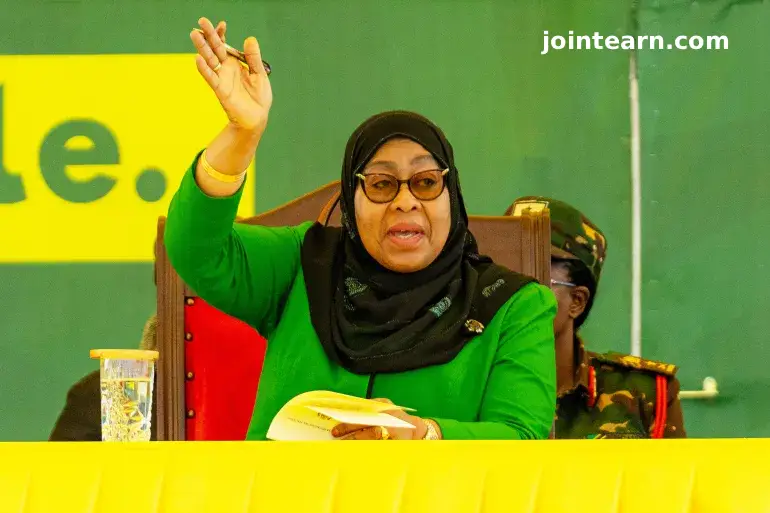
Dodoma, Tanzania – President Samia Suluhu Hassan has officially begun her second term in office, following a highly contested election that has triggered deadly protests across Tanzania. Hassan, who secured a controversial 98 percent of the vote, took the oath of office on Monday in a tightly controlled ceremony in the administrative capital, Dodoma.
The inauguration, held at a military base rather than a public venue, was broadcast on state television but closed to the public. The exceptional security measures reflected the heightened tensions and widespread anger over an election that opposition leaders and international observers have criticized as deeply flawed.
A Disputed Landslide Victory
President Hassan, who initially assumed power in 2021 after the sudden death of former President John Magufuli, won virtually unopposed in the October 29 vote. Key opposition candidates, including those from the main opposition party Chadema, were disqualified from the race months in advance, leading to allegations of authoritarian tactics and political suppression.
Chadema declared the election a “sham,” rejecting the result and demanding an independent review. “No genuine election took place in Tanzania,” the party said in a statement, calling for mass protests and international intervention.
Deadly Crackdown as Anger Boils Over
What followed the vote was a wave of protests that turned deadly. According to Chadema, hundreds of people were killed in clashes with police, who allegedly used live ammunition, tear gas, and brutal force to quell dissent. The party claims as many as 800 people may have died, though the exact number remains unverified.
A diplomatic source speaking to AFP reported “credible accounts” of hundreds, possibly thousands, of deaths documented at hospitals across Tanzania. There are also alarming reports that authorities are using a nationwide internet blackout, which began on election day, to suppress evidence and track down protesters.
The United Nations Human Rights Office confirmed at least 10 deaths in three cities but warned the real number could be far higher.
Tanzanian Foreign Minister Mahmoud Thabit Kombo denied accusations of excessive force, stating the government has no official death toll and accusing unspecified groups of spreading misinformation.
Human Rights Concerns on the Rise
This election marks a turning point for Hassan, once praised as a unifying figure after taking over from Magufuli. However, rights groups say her tenure has been marred by a pattern of repression, including arbitrary arrests, disappearances of political opponents, and the silencing of dissent.
Human Rights Watch and local NGOs have pointed to a “wave of terror” leading up to the vote, with a series of high-profile kidnappings and threats targeting journalists, activists, and opposition members.
Analysts suggest the sweeping victory—and formal display of power—may be Hassan’s attempt to crush internal challenges within her own ruling party, Chama Cha Mapinduzi (CCM), and solidify her grip on power.
Opposition Silenced, Democracy Under Threat
Tanzania’s hopes for a more pluralistic democracy have dimmed after opposition party Chadema was disqualified from participating in the election for “refusing to sign” an electoral code of conduct. The exclusion of major challengers cleared the way for Hassan’s near-total victory, prompting fears of democratic backsliding in one of East Africa’s most influential nations.
The final results, announced by the electoral commission on Saturday, showed Hassan dominating every constituency, a margin unseen in previous elections.
As the country braces for potential further unrest, the international community is watching closely for signs of dialogue, accountability, and a path back toward democratic norms.


Leave a Reply